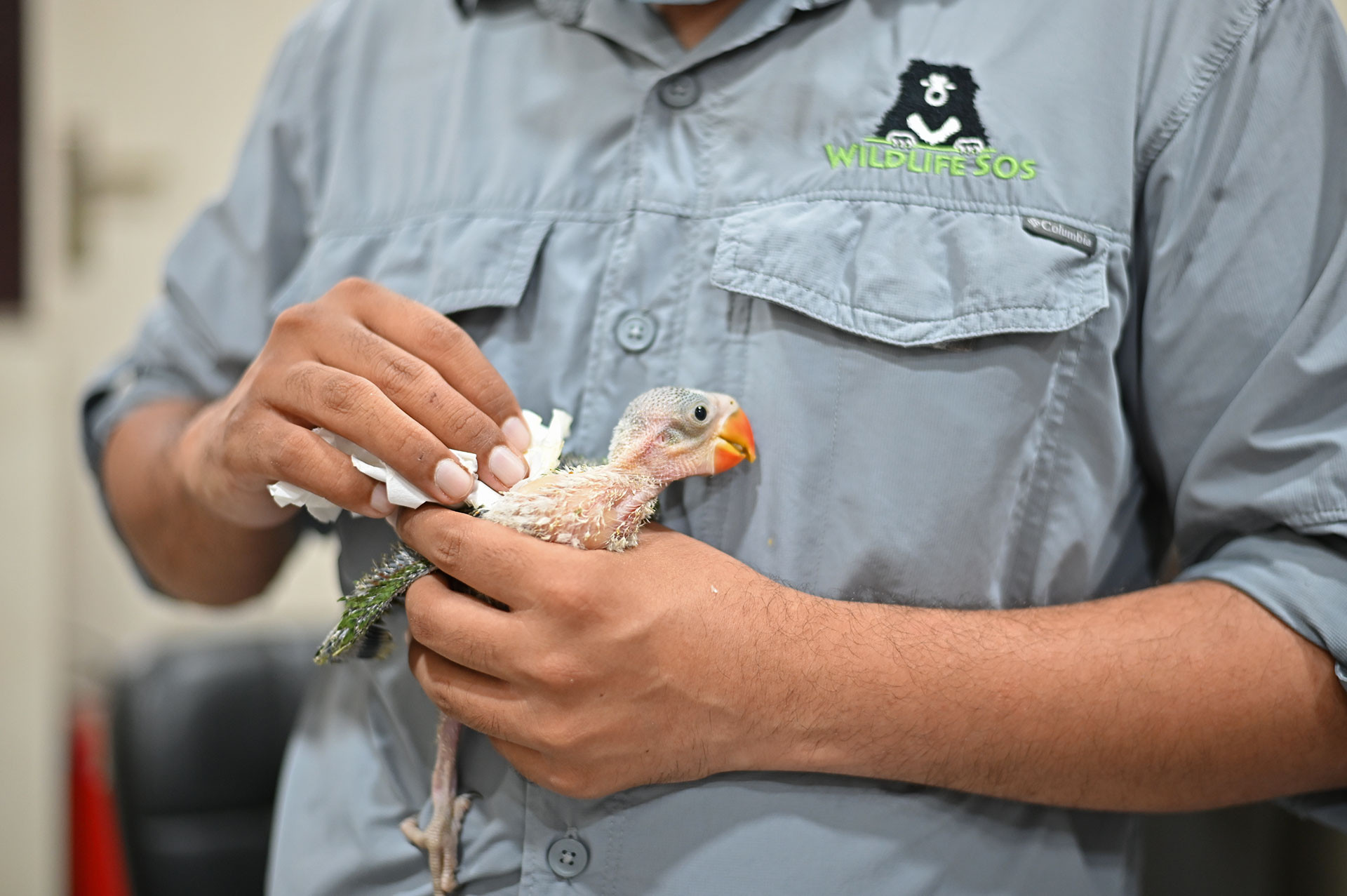Humans have always been drawn to parakeets—not only are they colourful birds, but they are delightful singers and mimics! To have them close, many keep them caged as pets, not knowing it is illegal or how it severely impacts parakeet populations in the wild!
The order Psittaciformes comprises parakeets and parrots, along with macaws, cockatoos and more. They are all often collectively referred to as “parrots.” Unfortunately, in the past 500 years, we have lost 20 parrot species from the wild globally. Today, nearly 27 per cent of all parrot species face the risk of extinction. Habitat loss, degradation, poaching, and pet trade have mostly contributed to this loss.
Recently, over 1700 birds rescued from a bird market in New Delhi were put under the care of Wildlife SOS—an Indian wildlife conservation charity. Parakeets, along with munias, mynas and buntings, were seized by the Delhi Police and Forest Department. Over 500 of these were baby chicks snatched from the wild and forced into captivity. Wildlife SOS rescuers put their best foot forward and took care of these young birds till they were old and healthy enough to be released back into the wild. The NGO's anti-poaching unit ‘Forest Watch’ also assists state forest departments and law enforcement agencies in capturing wildlife traffickers and smugglers and recovering animals and their body parts.
A 2019 CITES analysis report states that 90 per cent of all live birds traded are from the order Psittaciformes. To such a great degree that most parrot species are now endangered in their native lands. Parakeets are biological adaptors to novel environments. The lack of natural predators ensures that they thrive and propagate their species while also threatening the natural biodiversity. For instance, the Rose-ringed Parakeet has been traded to such an extent that it has successfully invaded 35 countries. The prolific species now occupies five continents where it competes with other species, exploits food resources, spreads diseases like psittacosis, and raids crop fields.
It is interesting to note that the Alexandrine Parakeet got its name from Alexander the Great, who had famously taken several species of parakeets from India to Europe and other parts of the world. Much like then, demand for exotic animals is steadily on the rise and feeds into the vicious cycle of illegal trafficking. Between 1990-91, India imposed a ban on bird trade to control the rampant trafficking in the country. Today, parakeets are protected under Schedule IV of the Wildlife (Protection) Act, 1972. According to the law, these birds cannot be trapped, sold, or held in captivity. If anyone is reported to sell or trade them, they would be liable to a hefty fine of ₹25,000, imprisonment of up to three years, or both.
Despite such legalities, parakeets and many other birds continue to be victims of this ugly trade. Poachers generally use nets and glue to trap these birds in the wild. Of the eleven native species of parakeets, the Rose-ringed Parakeet, Alexandrine Parakeet and Plum-headed Parakeet are among the most traded birds in the country. These birds are captured from the wild at a very young age and forced to live in horrific conditions, which violate the guidelines stated in The Prevention of Cruelty to Animals Act, 1960.
According to experts, at least 75 per cent of these animals die within the first year of adoption, with a vast majority succumbing to suffocation, disease, starvation and dehydration during transit. Despite having a solid legal framework that regulates and restricts the flow of wildlife trade, protected animal and bird species continue to be sold as exotic pets across India. Unfortunately, most people do not know it is illegal to keep these animals as pets, dooming them to a lifetime of misery behind cages. It is essential for the public to be aware of the illegality of such offences.




